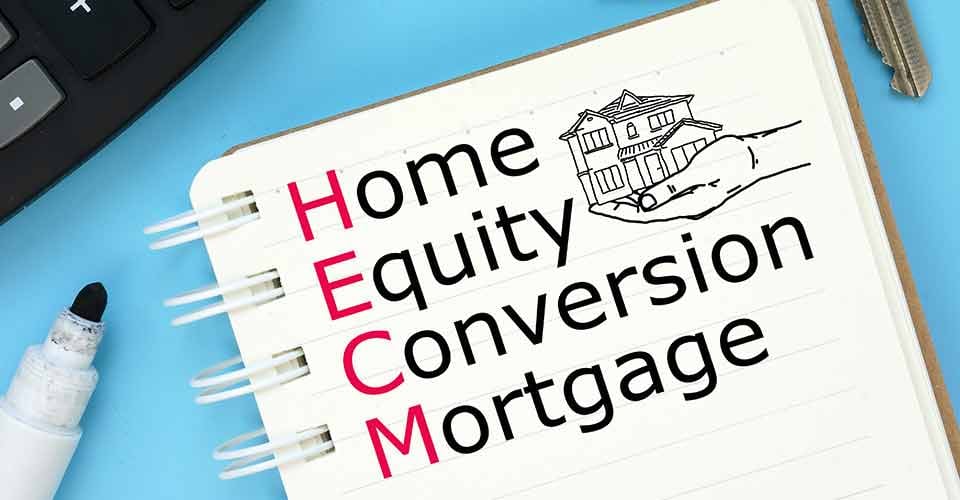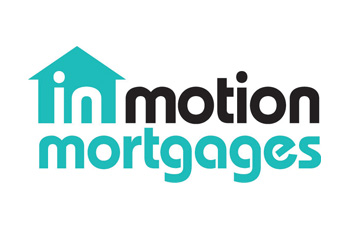Simple Walkthrough for Applying for Equity Release Mortgages
Wiki Article
Discovering the Various Kinds Of Equity Release Mortgages Available Today
Equity Release home mortgages existing different choices for property owners aged 55 and over. equity release mortgages. These financial products accommodate various requirements and choices, allowing people to access funds from their residential or commercial property. From life time home mortgages to shared appreciation home loans, each type uses distinctive advantages. Understanding these options is vital for making notified decisions. What elements should one take into consideration when choosing one of the most suitable equity Release strategy? The details that comply with may clarify this important topicComprehending Equity Release Mortgages
Equity Release home loans provide house owners, typically those aged 55 and over, with a means to access the value locked up in their residential or commercial property without requiring to market it. This economic alternative permits individuals to transform a section of their home equity into money, which can be used for numerous purposes, such as home enhancements, settling debts, or funding retirement.Equity Release can take various kinds, but it essentially entails loaning against the value of the home while retaining ownership. House owners can pick to receive a lump amount or a collection of smaller settlements, relying on their financial needs and preferences.Additionally, the amount offered for Release is influenced by the residential or commercial property's worth, the house owner's age, and certain loan provider standards. On the whole, understanding equity Release home loans is vital for property owners to make enlightened choices concerning taking advantage of their home's equity while taking into consideration the long-lasting ramifications.Lifetime Mortgages
Lifetime home loans stand for among one of the most prominent types of equity Release. This financial product enables homeowners, generally aged 55 or older, to borrow against the value of their residential property while maintaining ownership. The funding, which is secured versus the home, builds up passion gradually however does not need regular monthly payments. Instead, the car loan and accrued interest are settled when the property owner dies or relocates into long-term care.Lifetime home mortgages use adaptability, as debtors can select to receive a round figure or choose a drawdown facility, accessing funds as needed. Notably, many strategies included a no-negative-equity assurance, ensuring that consumers will certainly never ever owe greater than the worth of their home. This feature gives peace of mind, allowing individuals to appreciate their retired life without the worry of depleting their estate. In general, lifetime home mortgages function as a sensible alternative for those looking for financial backing in later life.Home Reversion Program

Drawdown Lifetime Mortgages
While many property owners seek means to access their riches, drawdown lifetime home loans offer a flexible option that enables people to Release funds slowly. This kind of equity Release home loan makes it possible for house owners to borrow versus the worth of their property while retaining possession. Unlike traditional life time mortgages, drawdown plans enable debtors to access a portion of their equity upfront and take out additional funds as needed, up to an established limit.This attribute can be specifically advantageous for those that desire to manage their finances meticulously, as it reduces rate of interest buildup by just billing rate of interest on the quantities attracted. In addition, drawdown lifetime home loans frequently come with a "no negative equity guarantee," making sure that debtors will never ever owe greater than their home's worth. This alternative suits retired people that desire economic security and versatility, allowing them to meet unanticipated expenditures or preserve their way of life without needing to offer their residential or commercial property.Boosted Lifetime Mortgages
Enhanced Life time Home mortgages supply unique advantages for eligible property owners looking for to Release equity from their properties. Comprehending the eligibility criteria is necessary, as it determines that can gain from these specialized financings. Nonetheless, it is also important to examine the prospective drawbacks connected with enhanced options, making sure an all-around viewpoint on their usage.Qualification Criteria Clarified
Understanding the qualification requirements for Improved Lifetime Mortgages is crucial for possible applicants seeking to access the equity in their homes. Typically, applicants must be aged 55 or older, as this age demand is typical in the equity Release market. Home owners should possess a building valued at a minimum threshold, which can vary by lender. Significantly, the property has to be their primary house and in good condition. Lenders frequently assess the home owner's wellness condition, as specific health problems might enhance qualification and advantages. Furthermore, candidates ought to not have existing substantial financial debts protected versus the home. Fulfilling these standards permits people to explore Boosted Life time Home loans as a viable choice for accessing funds locked up in their homes.Advantages of Improved Home Mortgages
After clarifying the qualification requirements, it comes to be noticeable that Improved Lifetime Home loans supply numerous significant benefits for home owners looking to utilize their property equity. Largely, they supply access to a larger loan amount contrasted to common lifetime mortgages, benefiting those with wellness conditions or age-related aspects that increase their life expectations threat. This boosted borrowing capacity enables house owners to meet various economic demands, such as home renovations or retired life expenditures. In addition, these mortgages commonly come with flexible repayment choices, enabling borrowers to manage their funds a lot more properly. The no-negative-equity warranty better assures that property owners will certainly never ever owe greater than their home's worth, providing assurance. On The Whole, Improved Lifetime Mortgages provide an engaging alternative for eligible house owners looking for monetary services.Prospective Downsides Considered
While Improved Life time Mortgages offer countless advantages, prospective disadvantages necessitate cautious consideration. One substantial problem is the influence on inheritance; the equity released lowers the value of the estate entrusted to beneficiaries. Furthermore, these mortgages can accrue substantial interest with time, causing a significant debt that might surpass the original lending quantity. There may also be restrictions on residential or commercial property adjustments or rental, limiting home owners' versatility. Moreover, boosted items usually need specific wellness conditions, suggesting not all property owners will certainly qualify. Taking care of the charges and charges associated with these home loans can be complicated, possibly leading to unforeseen prices. Because of this, individuals need to completely examine their scenario and get in touch with monetary experts before proceeding.Shared Appreciation Home Loans
Shared Admiration Mortgages represent a special monetary setup that enables homeowners to access equity while sharing future building worth increases with the lending institution. This method provides prospective advantages such as minimized month-to-month settlements, however it additionally comes with drawbacks that should be very carefully taken into consideration. Recognizing the qualification needs is vital for those interested in this option.Concept Summary
Equity Release home loans, especially in the type of common gratitude home loans, use house owners a distinct monetary service that permits them to gain access to funds by leveraging the worth of their residential or commercial property. In this setup, a lending institution gives a loan to the house owner, which is usually settled through a share of the building's future appreciation in value. This indicates that when the house owner sells the residential property or dies, the lending institution receives a portion of the increased value, instead of simply the preliminary loan amount. Shared appreciation home loans can be appealing for those looking to supplement their earnings or finance substantial expenditures while maintaining ownership of their home. The monetary ramifications of shared admiration need to be thoroughly considered by prospective debtors.Advantages and Disadvantages
Although shared recognition mortgages can provide significant financial benefits, they also include notable disadvantages that prospective debtors ought to take into consideration. These home mortgages allow house owners to accessibility equity in their buildings while sharing a portion of any kind of future appreciation with the lending institution. This arrangement can be useful throughout times of rising property values, supplying considerable funds without month-to-month repayments. The major downside is the possible loss of equity; homeowners may end up with substantially lowered inheritance for heirs. Furthermore, the intricacy of the terms can bring about misunderstandings relating to settlement responsibilities and the percentage of admiration owed. It is crucial for customers to consider these factors very carefully prior to committing to a shared gratitude mortgage.
Eligibility Needs
What criteria must house owners meet to get a common recognition home loan? Mainly, candidates have to go to least 55 years old, ensuring they are within the target demographic for equity Release items. Furthermore, the property must be their primary residence and normally valued above a defined minimum limit, commonly around ? 100,000. Lenders also assess the homeowner's monetary circumstances, including earnings and exceptional debts, to ascertain they can manage the mortgage responsibly. Notably, the residential property has to remain in good problem and without considerable lawful encumbrances. Home owners ought to also have a clear understanding of the terms, best site including how gratitude will be shared with the lender upon sale or transfer of the residential or commercial property, as this affects general returns.Picking the Right Equity Release Option

Often Asked Questions
What Age Do I Need to Be for Equity Release?
The age need for equity Release usually starts at 55 for a lot of strategies. Some companies may supply alternatives for those aged 60 and above, reflecting differing terms based on specific situations and lending institution policies.Will Equity Release Influence My Inheritance?
Equity Release can impact inheritance, as the amount obtained plus interest decreases the estate's value. Beneficiaries may get less than anticipated, depending on the home's recognition and the overall debt at the time of passing.Can I Relocate House With Equity Release?
The question of moving home with equity Release develops often. Generally, people can transfer their equity Release strategy to a brand-new home, however certain internet terms might use, requiring assessment with the loan provider for support.Exist Costs Related To Equity Release Mortgages?
Costs related to equity Release home loans can include plan charges, assessment charges, and legal expenses. Furthermore, there might be early settlement costs, which can influence the total expense and monetary implications for the consumer.How Does Equity Release Impact My Tax Obligation Circumstance?
Equity Release can impact one's tax scenario by possibly enhancing taxable income, as released funds are considered funding. However, it usually does not sustain immediate tax responsibilities, making it vital to get in touch with a financial advisor for personalized guidance.Verdict
In recap, the selection of equity Release home mortgages available today uses property owners aged 55 and over numerous pathways to access their building's value - equity release mortgages. Whether going with a lifetime home mortgage, home reversion strategy, or other alternatives, each choice presents unique advantages try this out customized to individual monetary demands. Cautious factor to consider and examination with a financial consultant are necessary to assure the chosen equity Release service lines up with financial scenarios and individual objectives, inevitably helping with informed decision-making for a protected monetary future. Equity Release home mortgages existing various alternatives for homeowners aged 55 and over. Equity Release mortgages offer house owners, commonly those aged 55 and over, with a method to access the worth linked up in their home without needing to offer it. Improved Lifetime Mortgages supply distinctive advantages for eligible homeowners seeking to Release equity from their homes. Equity Release mortgages, especially in the type of shared admiration home loans, supply homeowners an one-of-a-kind financial remedy that allows them to accessibility funds by leveraging the value of their building. In summary, the variety of equity Release home loans offered today offers home owners aged 55 and over multiple paths to access their residential or commercial property's worthReport this wiki page